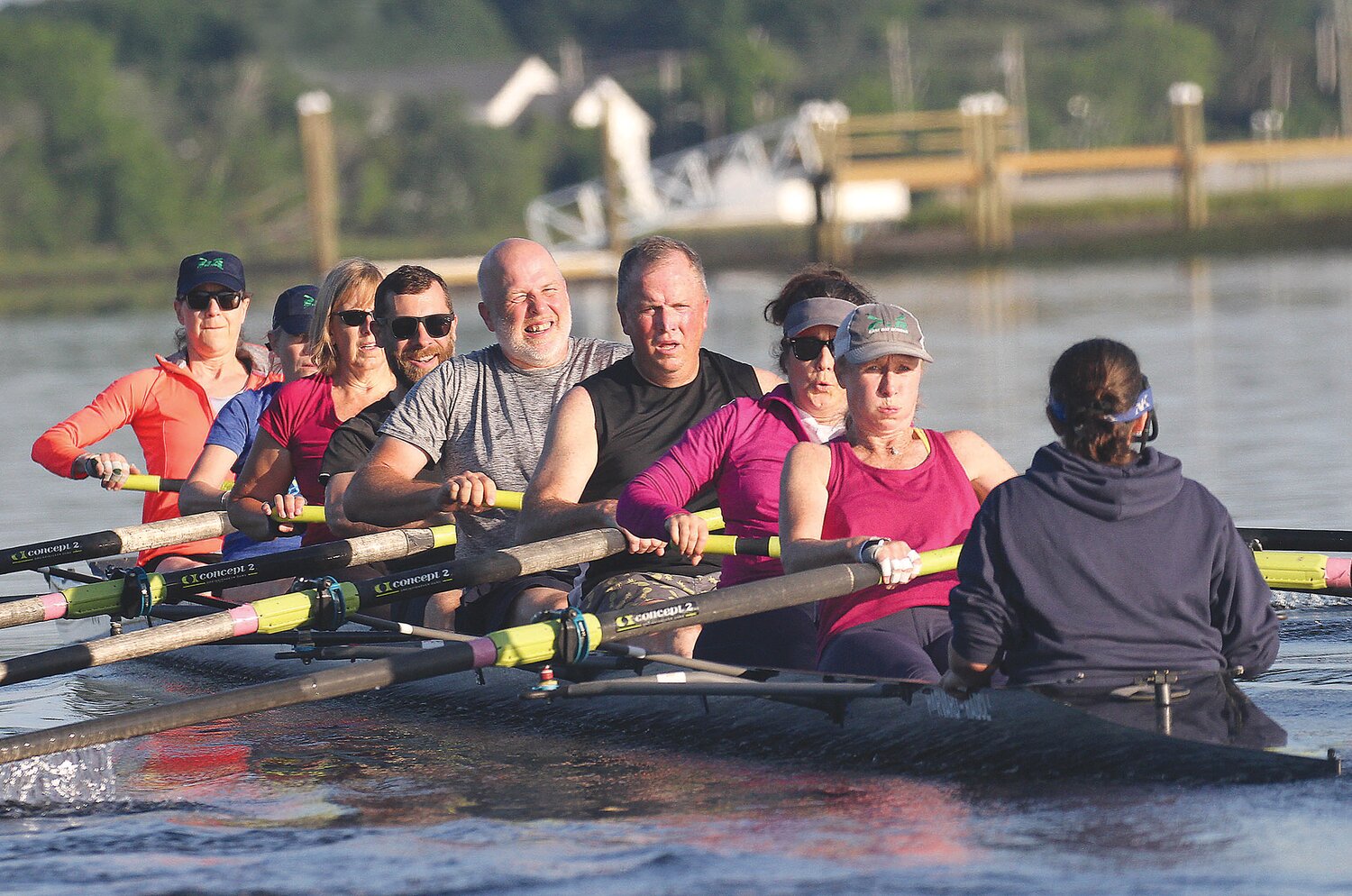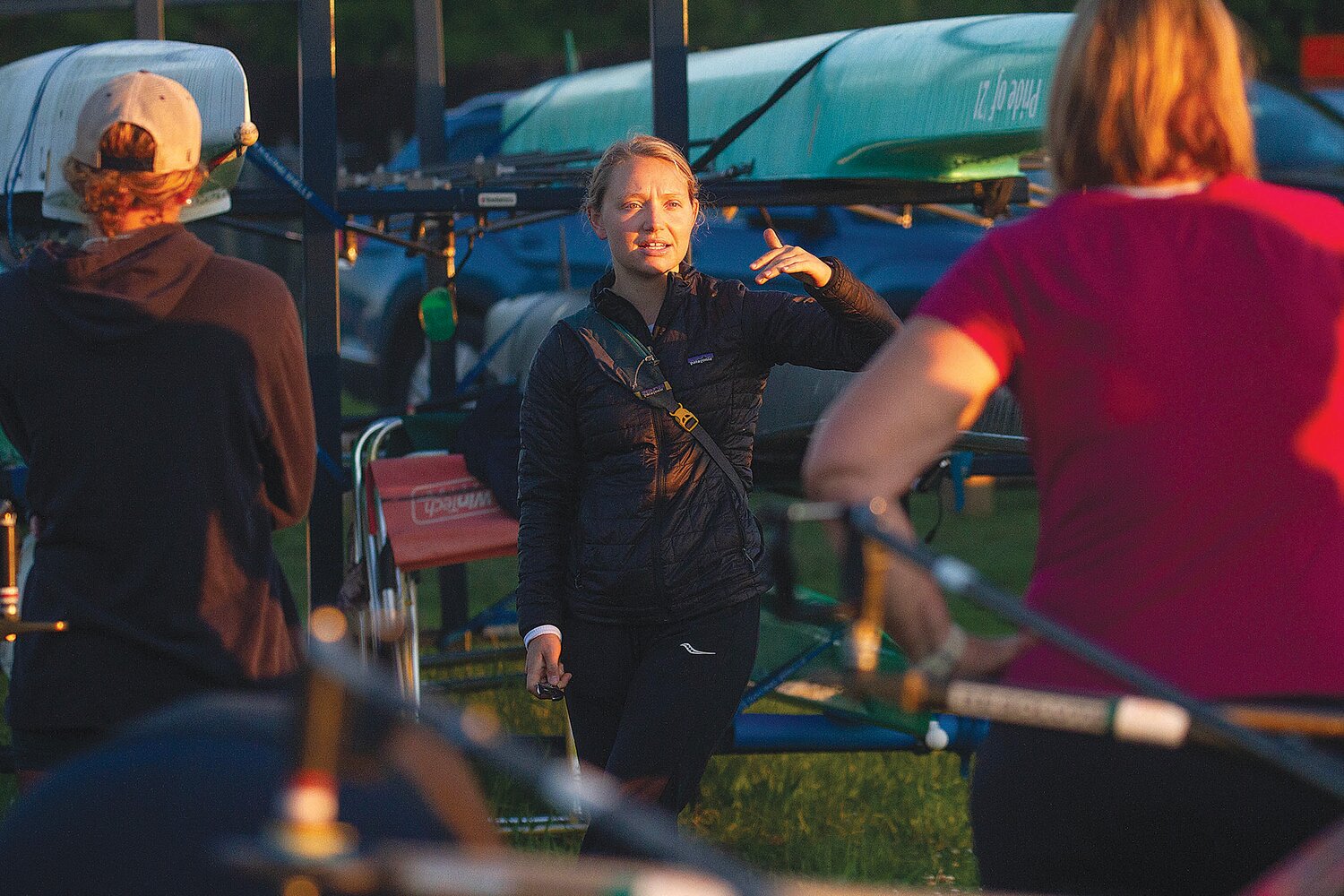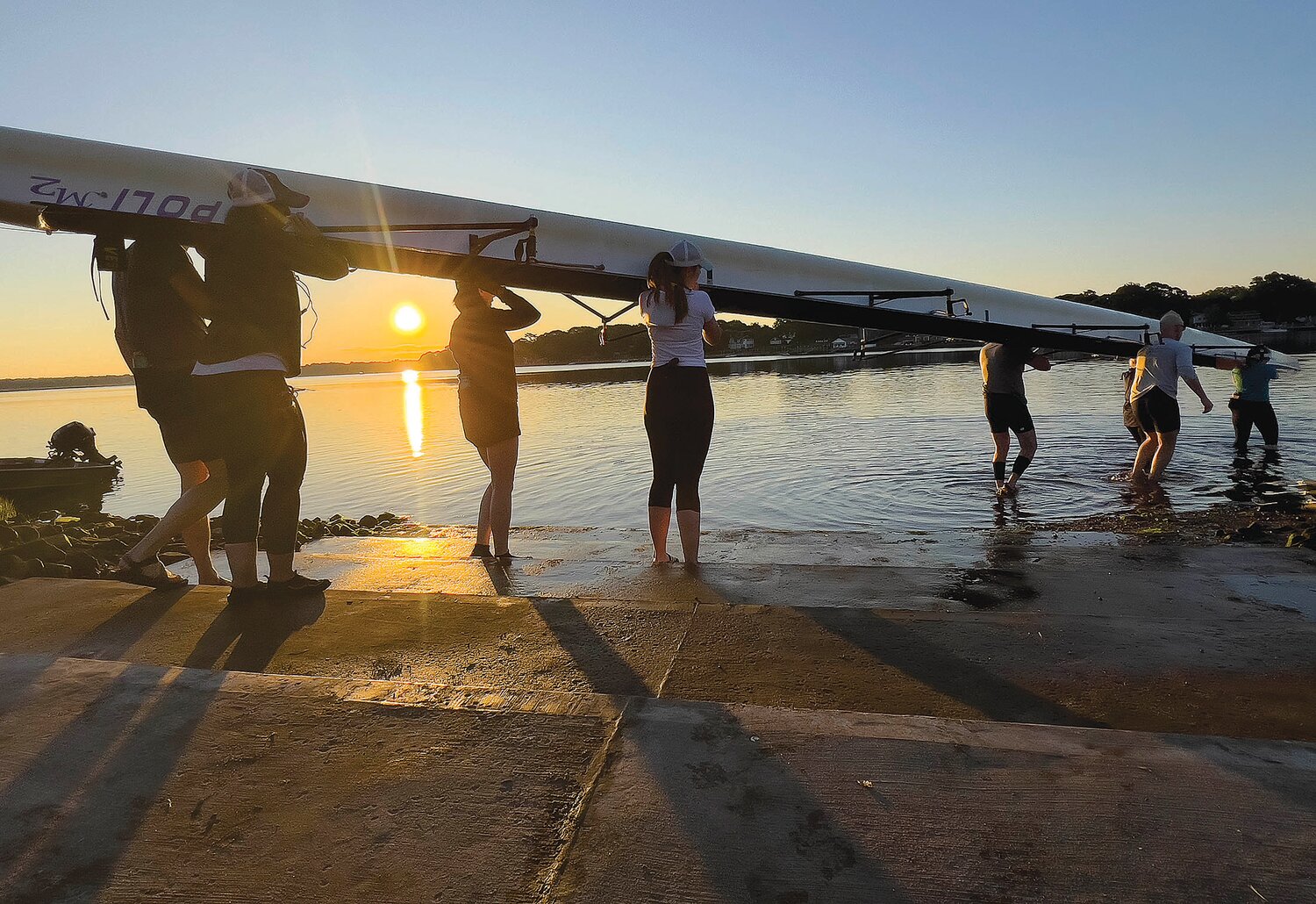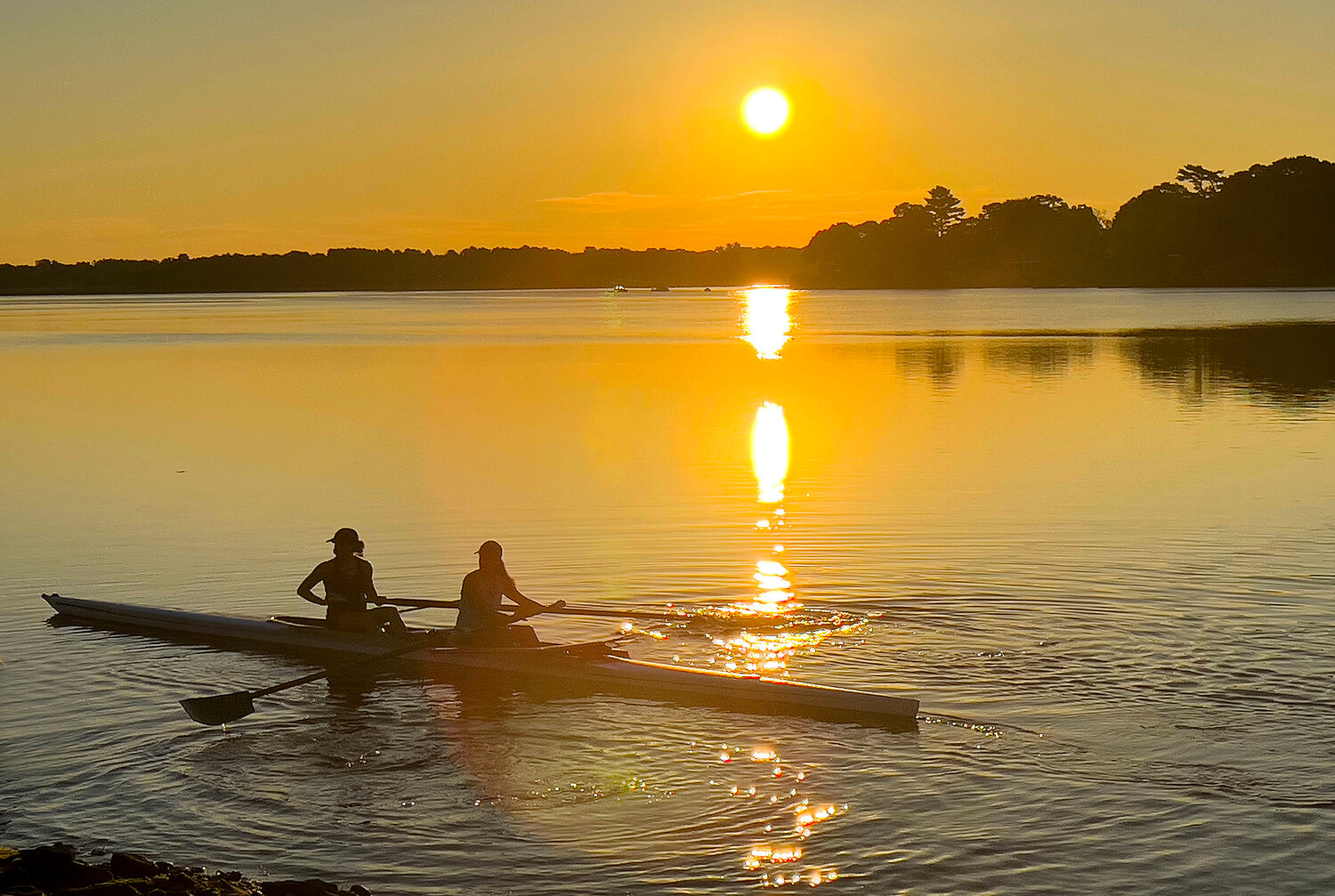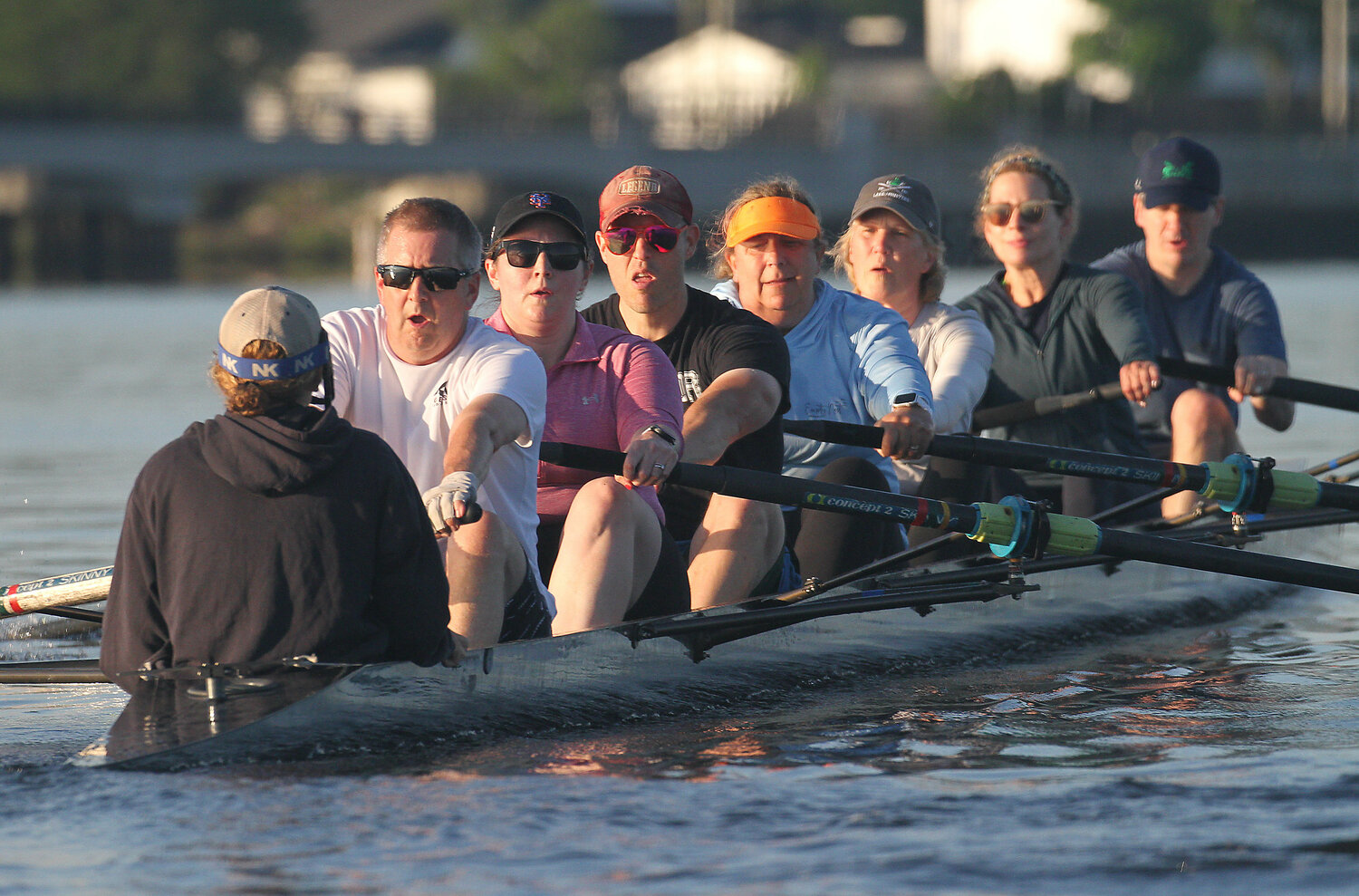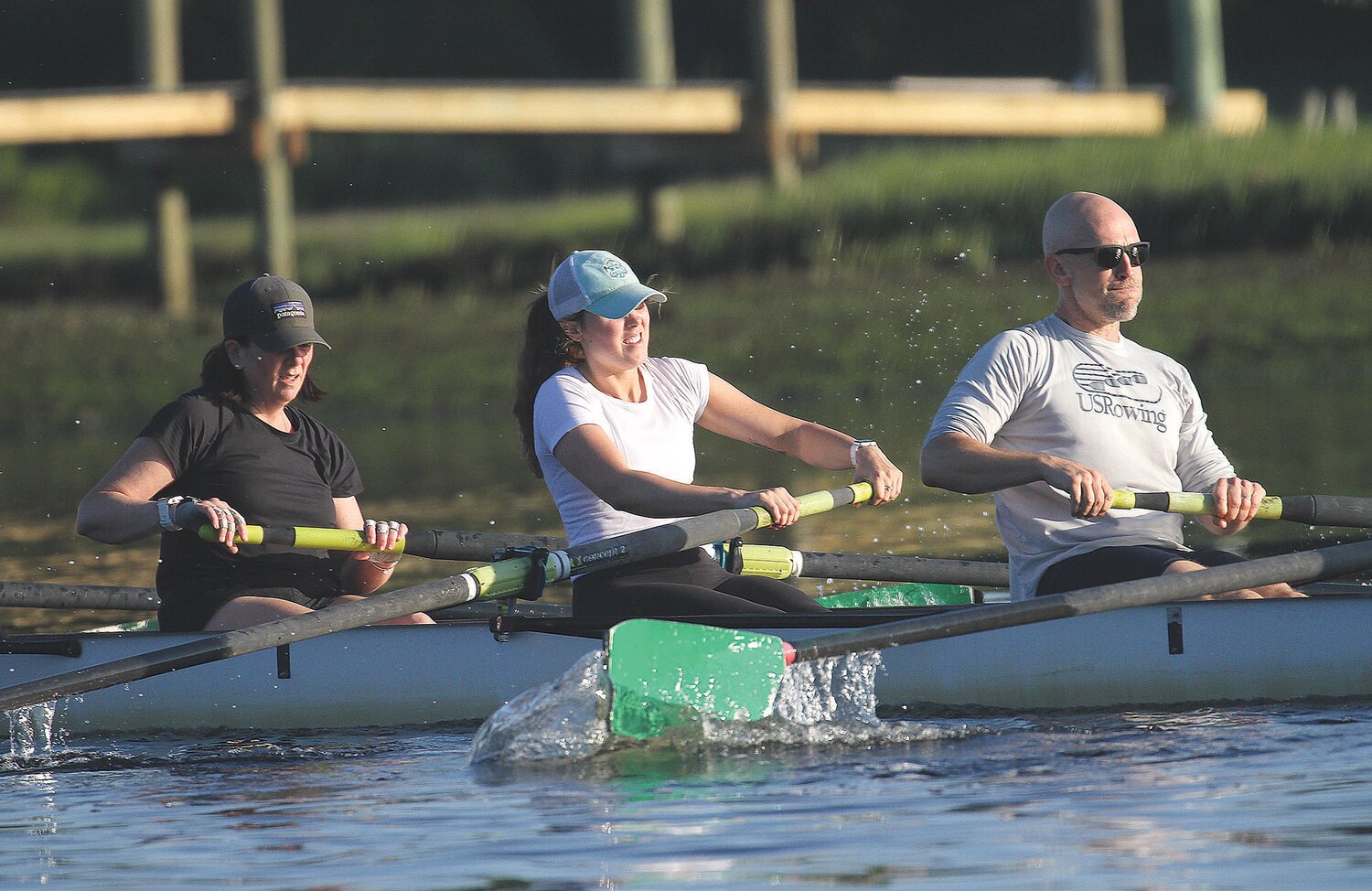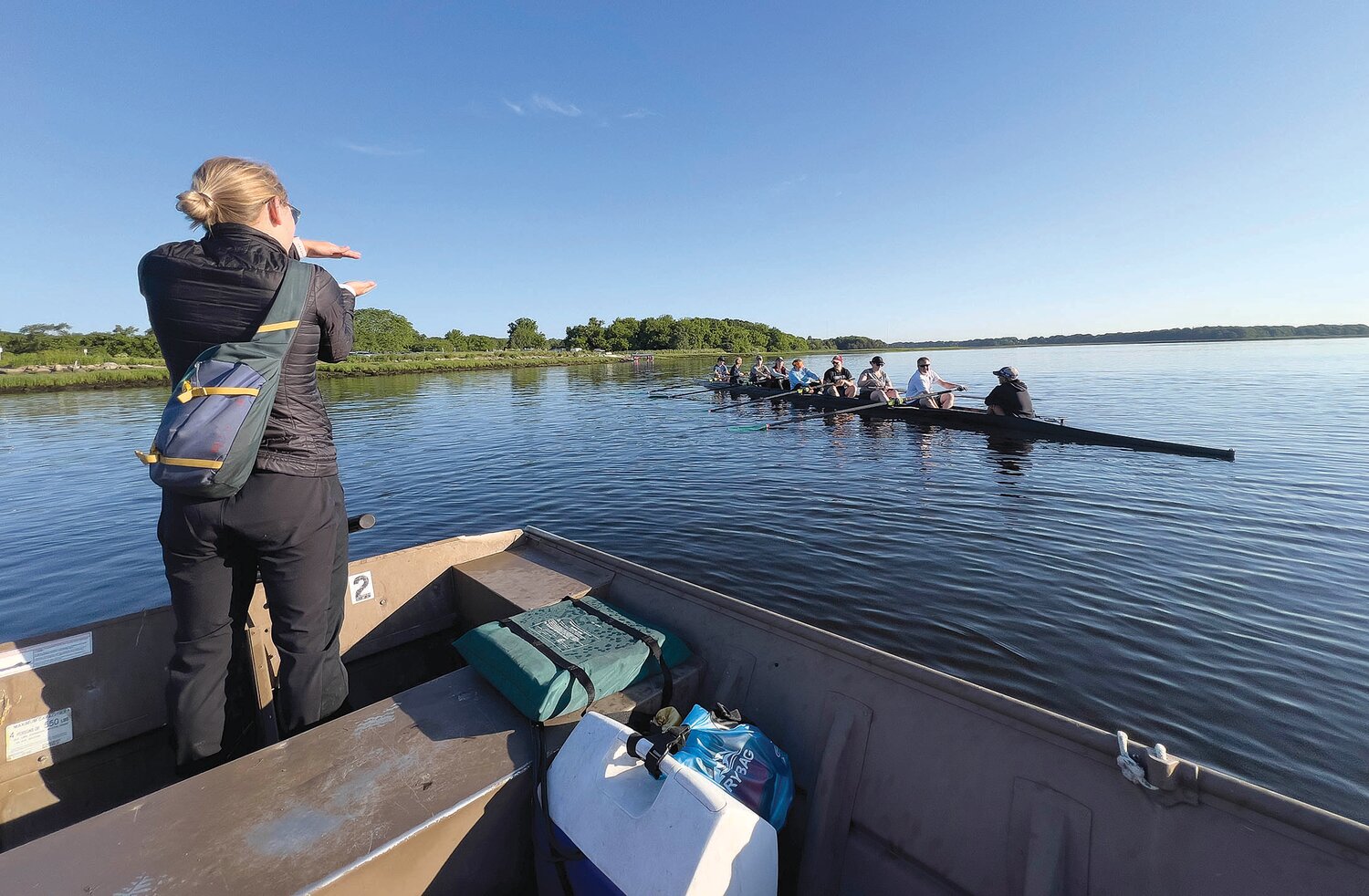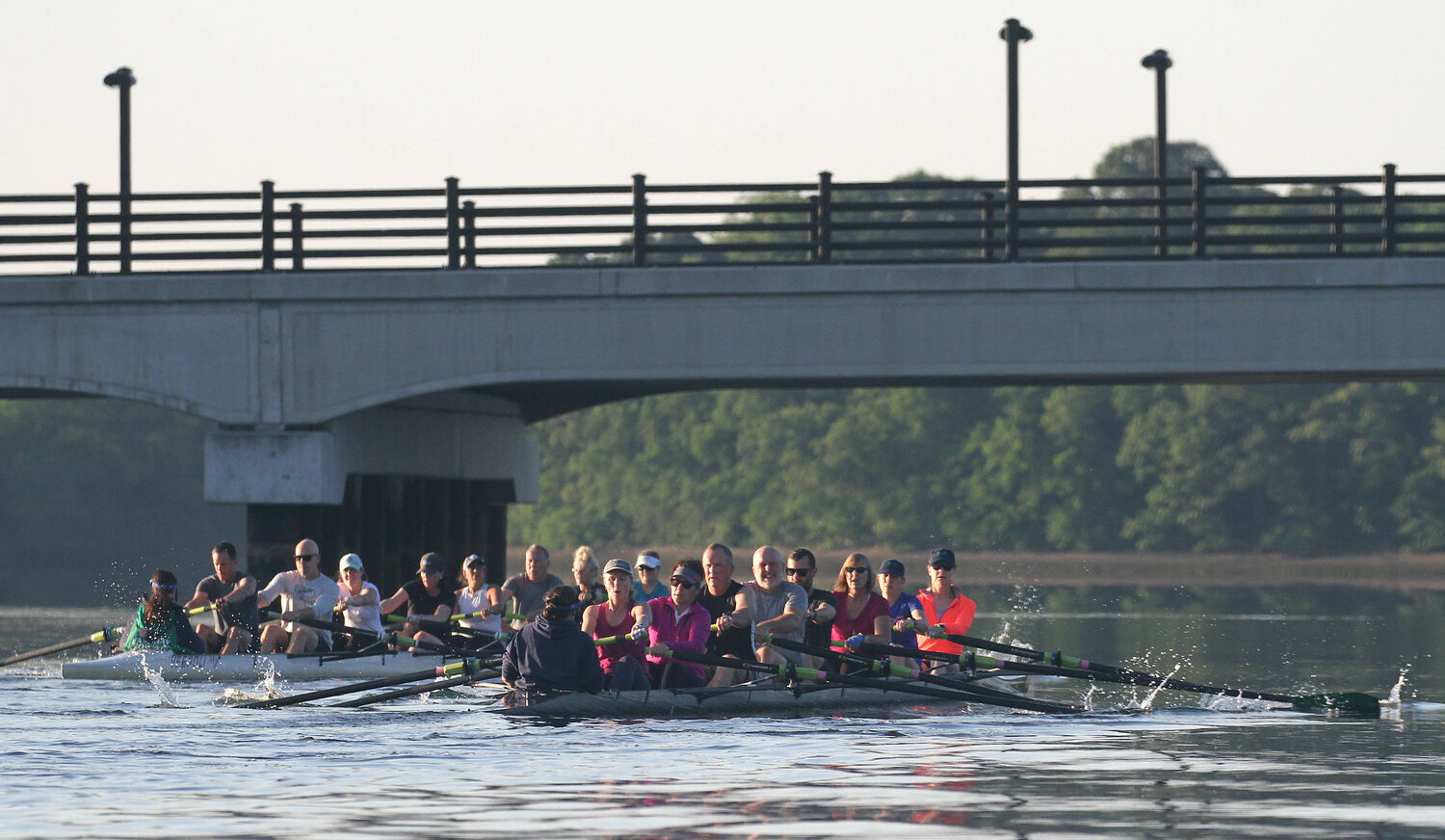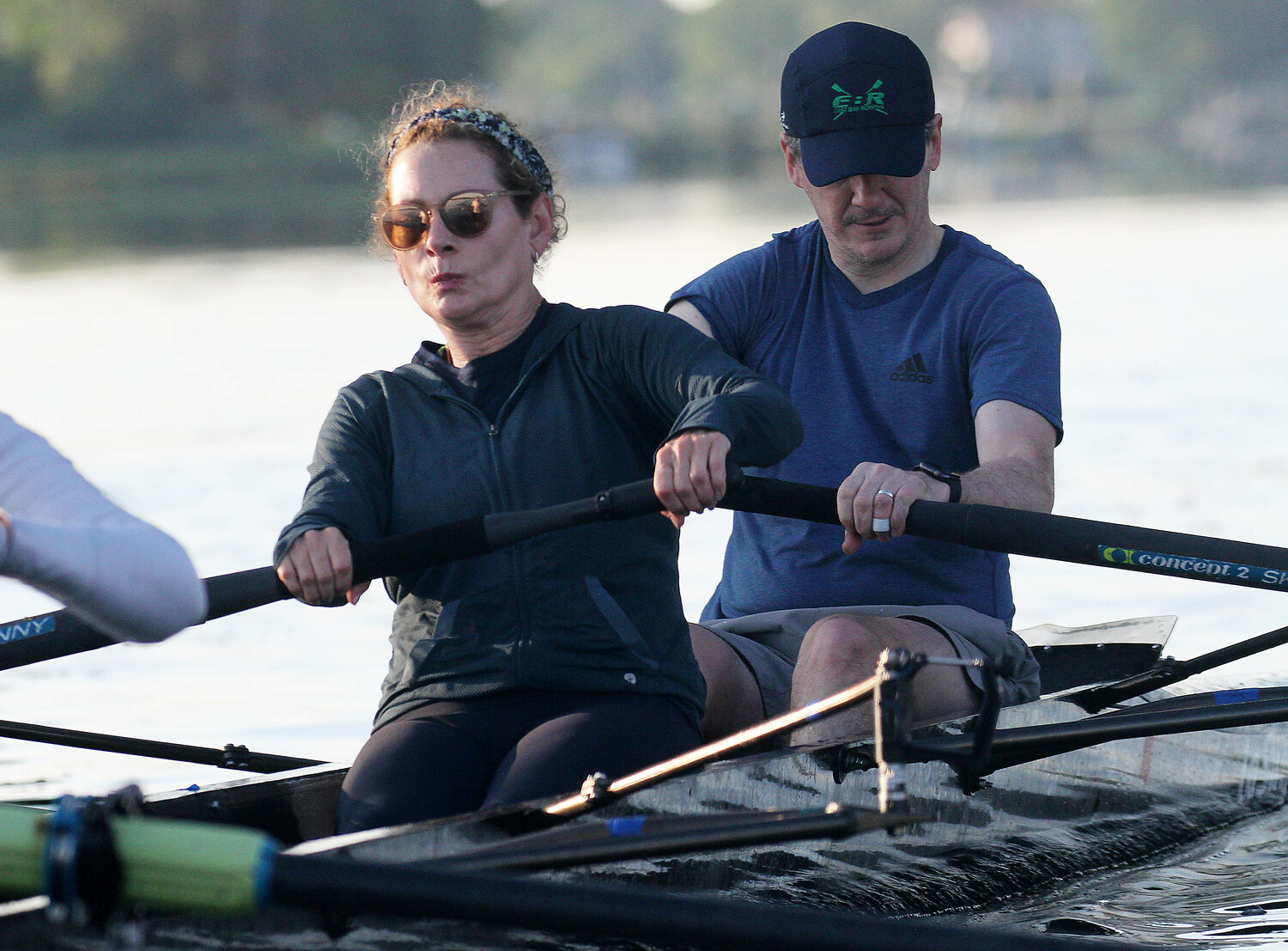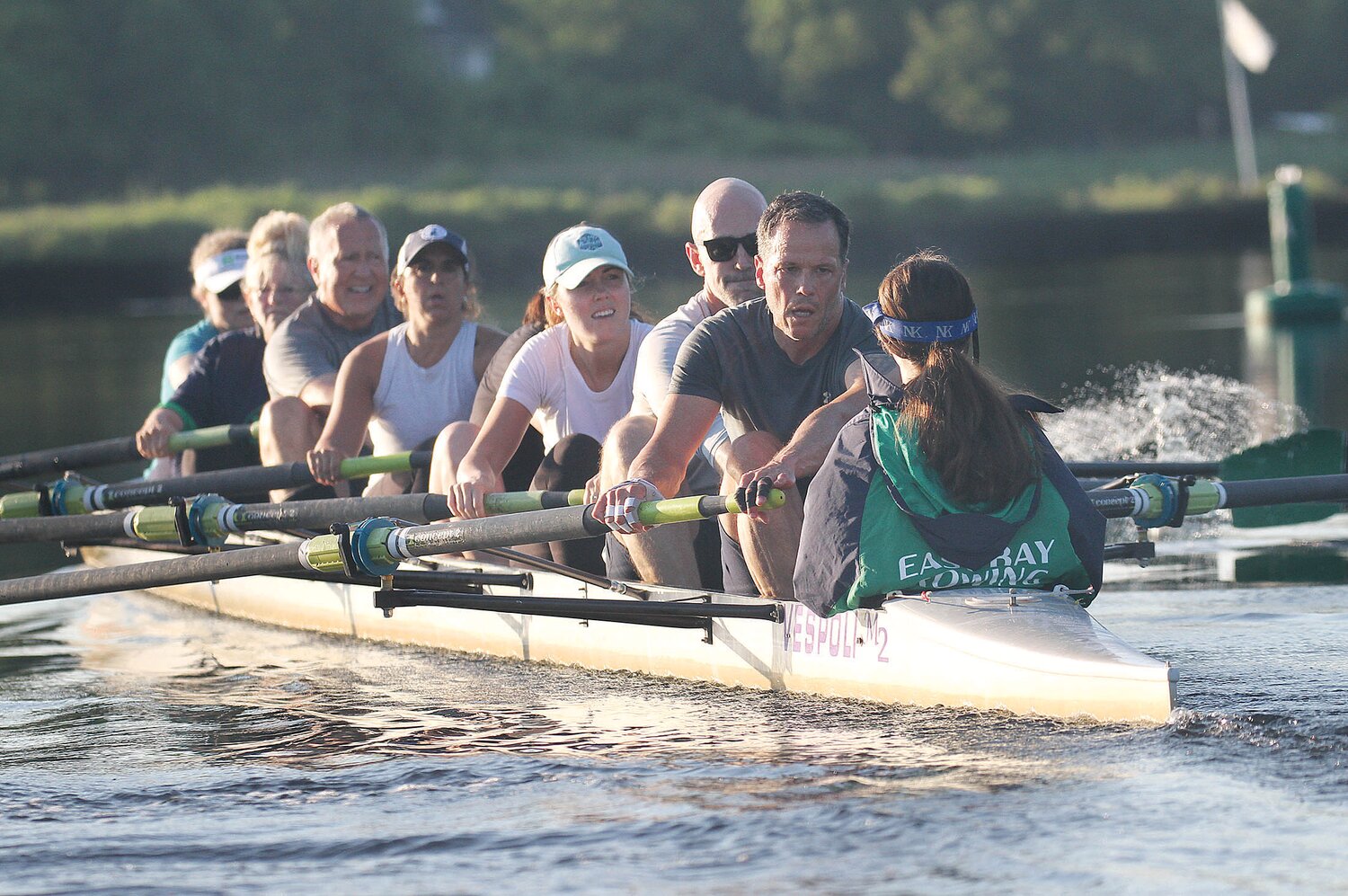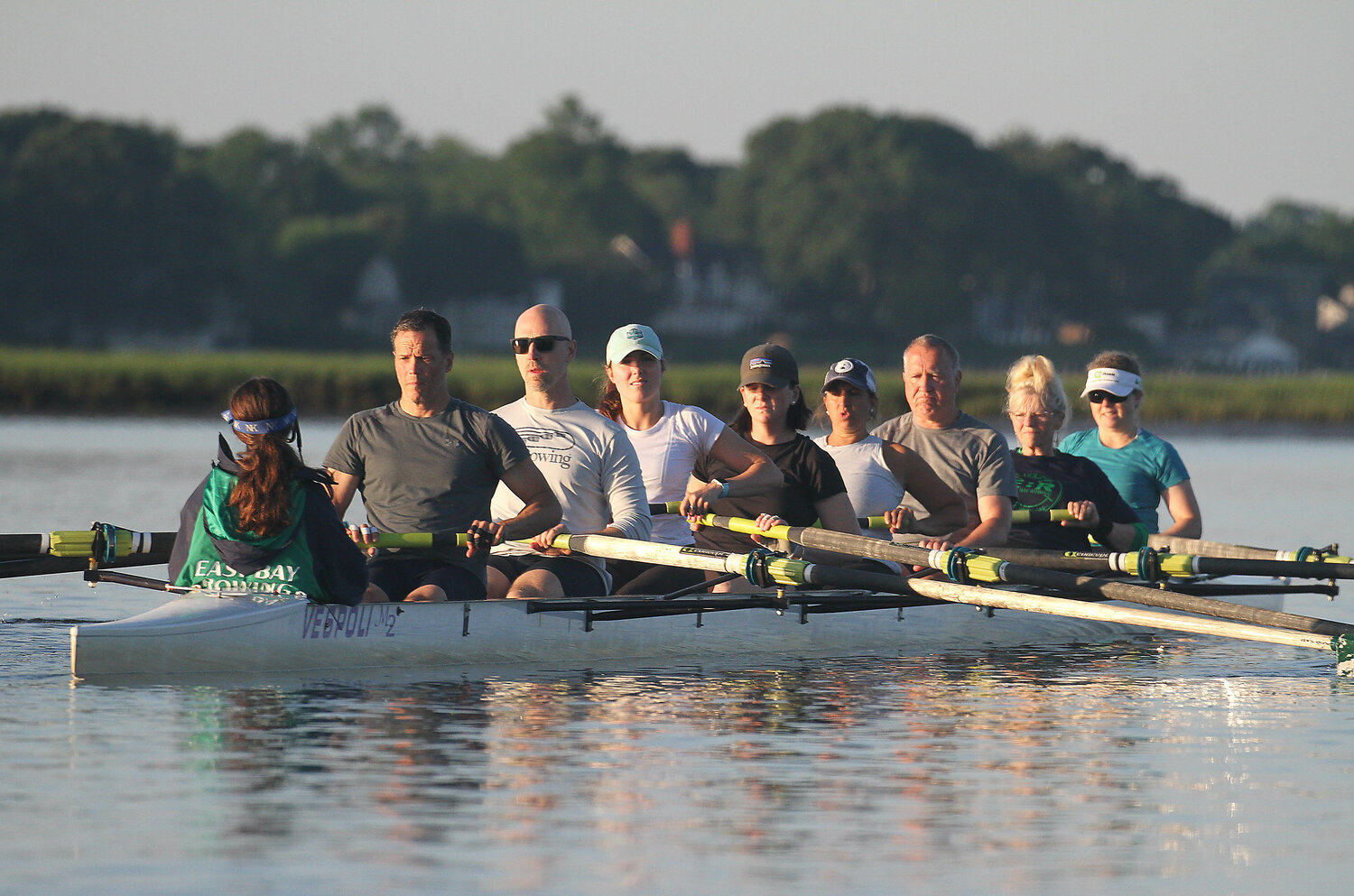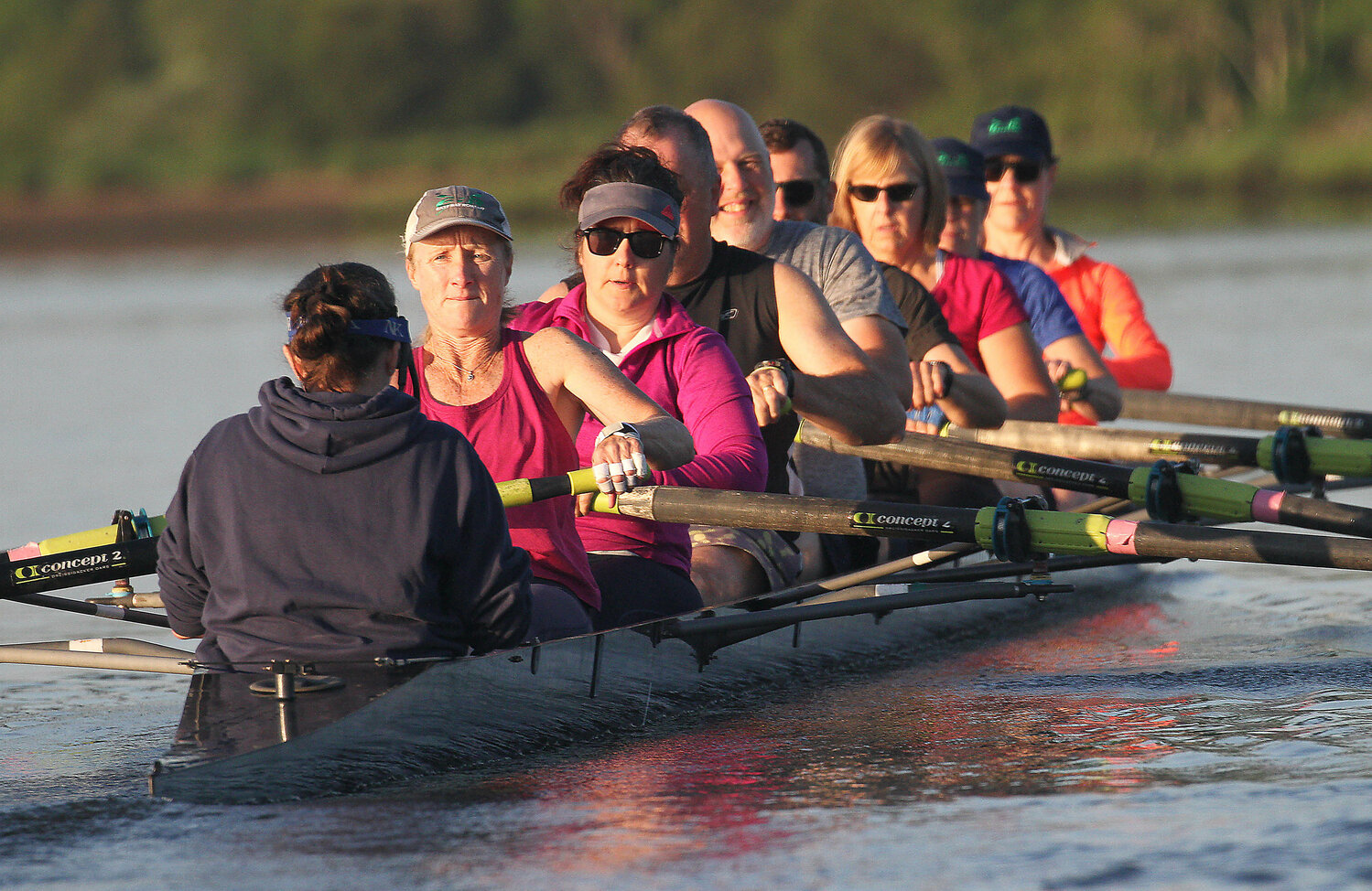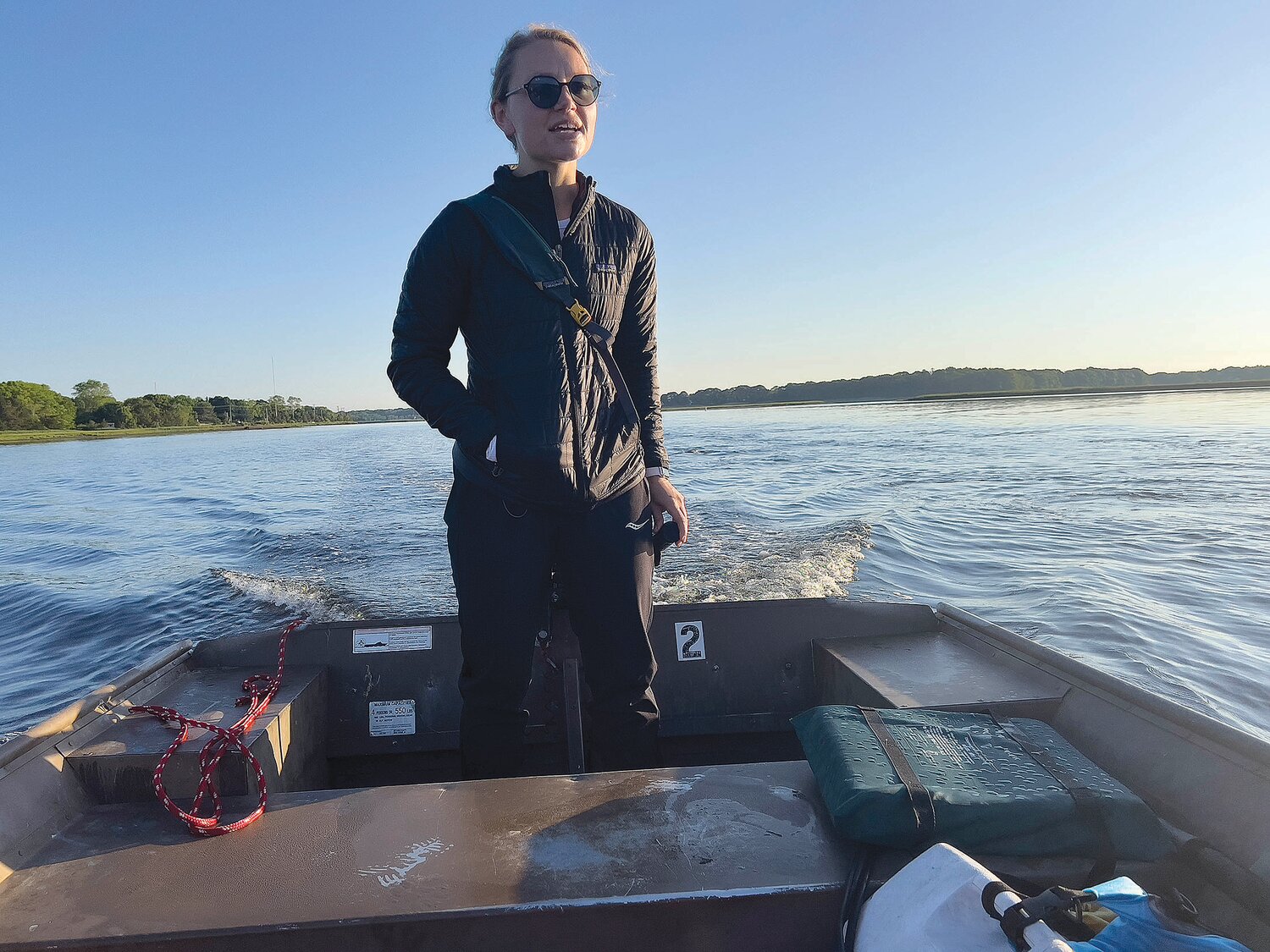- FRIDAY, JULY 5, 2024
Ready, row! – On the water with a local rowing club
At 12 years young, East Bay Rowing is in a great rhythm
It’s 5:15 on a Thursday morning. Down a dusty lane aside the shore of Hundred Acre Cove in Barrington, one car after another crunches and slows to a stop. Each driver steps out, makes …
This item is available in full to subscribers.
Please log in to continue |
Register to post eventsIf you'd like to post an event to our calendar, you can create a free account by clicking here. Note that free accounts do not have access to our subscriber-only content. |
Day pass subscribers
Are you a day pass subscriber who needs to log in? Click here to continue.
Ready, row! – On the water with a local rowing club
At 12 years young, East Bay Rowing is in a great rhythm


Since offering its first camp 12 summers ago, the East Bay Rowing club has grown in both size and accomplishments. At any time, it typically has 75 to 80 rowers actively participating, split between youth and adults. A remarkable 35 of the high school rowers have gone on to row in colleges, many of them receiving full or partial scholarships. East Bay Rowing alumni have joined crew programs at Cornell, Brown, the University of Virginia, William & Mary, Columbia, Middlebury, Holy Cross, MIT, the University of Rhode Island, Hobart, Ithaca, Tulane, LaFayette, Arizona State, WPI, the University of Vermont and a dozen other colleges and universities.
It’s 5:15 on a Thursday morning. Down a dusty lane aside the shore of Hundred Acre Cove in Barrington, one car after another crunches and slows to a stop. Each driver steps out, makes last-minute clothing adjustments and quietly walks across wet grass to racks of long, sleek racing shells.
The scene is breathtaking – like the opening frame of a Hollywood film. An enormous orange sun rises over the water, which stretches in all directions as a vast sheet of glass. The air is warm and single birds fly overhead. An osprey rustles in its nest atop a pole just offshore.
On land, there is quiet chatter, a few short laughs, quick “hello”s and purposeful activity. Twenty-six rowers in the “Masters” program of the East Bay Rowing club are getting ready to launch four boats — three “eights” and a smaller shell designed for two rowers with single oars. As they get closer to launch, diminutive and confident coxswains begin calling out instructions.
Before 5:30 a.m., East Bay Rowing Director and coach Kelsey Gosch calls everyone together. All of the men and women, most much older than Gosch, step toward her and listen. She gives brief instructions about that day’s workout, which will have them on the water for about an hour and a half, rowing north and south through the cove, under the Barrington River bridge and back again.
Within minutes, the boats are lifted overhead, eight bodies moving as one. Each is carried to the shore and gently lowered into the water. Rowers, most wearing water shoes and shorts, walk shin-deep into the water before stepping into the boat, sliding their seats into position and strapping into foot rests.
They glide out to deeper water and coxswains, speaking into headsets connected to in-boat speakers, call out instructions. “Ready, row!” Oars dip into the water, and the shells slide away north, cruising silently atop the surface within site of the Wampanoag Trail as some of the day’s earliest commuters whizz by on their way to work. The session has begun. Chatter and laughter fade away. Seats glide along their tracks. Muscles strain. Oars dip and splash. Breathing becomes heavier.
While most of the world still sleeps, more than two dozen men and women slice across the cove, and nothing else matters. The sun lifts higher. The air gets warmer. It’s a perfect morning for rowing. Actually, it’s a perfect morning for anything. These 29 people just happen to be awake to see it. Begin movie …
Growing and teaching
Of course, not every morning is perfect for rowing, but even when conditions are less than ideal — raining, cold, raw — these crews hit the water. That’s part of the rowing culture. Some weather conditions will occasionally keep them off the water — strong winds or thunderstorms, and in rare instances dense fog. Other than that, however, crews haul their shells down to the water, drop them in, and face whatever rain, cold or other conditions Mother Nature brings that day.
So nearly every day of the week, someone from the East Bay Rowing club is following that same routine at Walker Farm on Hundred Acre Cove. The club has programs for adults (“masters”) and youth (ages 13-plus). It has summer camps, beginner classes, “learn to row” programs, girls’ teams, boys’ teams, mixed teams, and competitive boats. It recently added its most significant training tool, a a 28-foot motorized rowing barge it nicknamed the “EB-Arge.”
The EB-Arge, which is moored in the cove, allows novice rowers to act and feel like they’re in a real racing shell, but under the guidance of an instructor who can steer and power the barge with a small motor. “It’s a really phenomenal teaching tool,” said Deb Sullivan, who is the club’s co-founder and current president.
The club purchased the barge this spring after launching a highly successful fund-raising effort last fall. Within months, they had what they needed to acquire and launch it, and almost immediately they began bringing students onto it. It is frequently home to younger, first-time rowers.
“The barge is so much fun,” Sullivan said. “The kids talk to each other. I mean, we tell the kids, ‘when you get in a team boat, you don’t talk to each other, but right now you can.’ They talk about school, and they’re goofy, but they’re just so much fun.”
To keep growing its membership, and to spread its love for rowing, the club launched a Learn to Row program at Barrington Middle School this past winter, aided by a Barrington Education Foundation grant that resulted in six new WaterRower machines being installed at the school. The school uses the machines in its Physical Education program, but the club offered an early-morning program that sold out all sessions.
“We had 15 kids showing up at 7 in the morning Mondays and Wednesdays, and another 15 kids on Tuesdays and Thursdays … It was so much fun!” Sullivan said. “I just love coaching the kids.”
A love for the sport
Sullivan leads many of the coaching and training efforts for the East Bay Rowing juniors, while Gosch works heavily with the varsity and adult programs. Her director job is a part-time gig (separately she has a full-time job), yet it is a sign of maturity for a club that was founded just 12 years ago. For many years, the club was led by mostly volunteer efforts.
For Gosch, the job is also a passion, keeping her close to something that has been a significant part of her life for many years. Gosch grew up in Buffalo, N.Y. While attending a summer camp when she was in eighth-grade, the counselors needed something to do with 30 young teenagers on a rainy day. “So they threw us all on ergs [indoor rowing machines], and I happened to love it.” She started rowing and didn’t stop. She rowed through high school and at Wellesley College, and though she occasionally jumps in to row these days, her passion now is coaching.
“I love taking all those experiences, from nine years of rowing, and bringing it to people who also love this sport,” she said.
When the boats launch for a training session, Gosch hops into a small skiff and motors alongside them. With four shells in the water at the same time, she zips from one to another, watches each crew for a few minutes and calls out instructions or feedback. She corrects rowers on their stroke, their positioning, their angle into the water. Her advice is helpful but forceful. She loves the sport for both its physical and mental benefits.
“The dedication it requires. The balance it demands in your life. If you’re waking up at 5 in the morning, you’re committed. It’s a pretty intensive sport. It’s a full-body workout. You’re out on unstable water sometimes. The balance of the sport life and the rowing life,” Gosch said of all the things she admires about rowing.
A community of rowers
A few row alone, but it is not common. Most participants row in teams, where cooperation and selflessness are required. Though the club has come a long way since its early days, and improvements to the Walker Farm launch area have made life easier, they do not have a dock for launching, and there are no support crews to set up gear or shells.
That’s why the rowers know to show up early, 15 to 20 minutes before a session begins, to start preparing everything. The boats don’t lift themselves off the racks and float down to the water; the rowers lift them over their heads and haul them down there.
“This is a community-oriented program,” Gosch said. “It’s not just a gym class that you drop into, and then you leave. There’s no magic fairy who’s going to come down here and set all this stuff up. So it really is very cool that people are investing in the club beyond just the practice time.”
That level of responsibility rests not just with the adults. The kids learn it, too. While Sullivan and Gosch were standing near the racks of East Bay Rowing shells on a sunny afternoon, a couple of boys from the high-school-age varsity team showed up well before anyone else for their 5 p.m. practice. The two of them went into the club’s “boat house,” which is actually just a parked trailer, unlocked the rack, got the coach’s launch boat down to the water so it would be ready for practice, and began bringing down the oars for their teammates.
The directors say this level of responsibility – they can’t just show up, roll a ball onto a field and start playing, like kids do in other sports – requires athletes to apply themselves beyond just competing.
Said Sullivan, “When we travel to regattas, they have to rig their boats, they load them onto the trailer, they have to label everything, to make sure they the right parts. I had one parent say to me, ‘I can’t believe my daughter knows what a seven-sixteenths wrench is … It’s just an extra feature you get with rowing — that level of responsibility.”
Small and mighty – The critical role of the coxswain
Everyone involved in rowing the “eights” — the largest shells holding eight rowers plus a coxswain — knows the responsibility the all bear to every other member of that crew.
Said Sullivan, “If you have an eight-person shell and one person doesn’t show up — we can go out with seven, but it’s a pretty crummy row. If two don’t show up, you’re not going out, period. So they know that they have to be there for each other. If you don’t show up here, we don’t go out.”
Gosch loves everything about rowing — the teamwork, the discipline, the locations (remember that Hundred Acre Cove setting with the sun and birds and glasslike vista). She also loves the sense of commitment and dedication it instills its participants.
“I do think it’s a sport that builds on itself, and the longer you’re in it, the more you buy into the mindset of, ‘I’m showing up for everybody, not just myself,’ which I think is really unique about rowing. And once you’re actually out on the water, rowing, you have to be so finely in tune with the people that you’re rowing with, it can be really magical. You have to really trust the people in your boat, and that trust has to be built off the water as much as on the water,” Gosch said.
A lifelong love
The club directors said the love for the sport, and for the club, seems to span both years and generations. They see many family members who end up rowing together — father and daughter, husband and wife — and they also see many alumni come back to support the program years later.
“We have a lot of alums from East Bay Rowing who come back and coach with us,” said Gosch. “The varsity boys’ coach right now is an alum. The prior varsity girls’ coach is an alum. I think it’s really cool that there is a desire from these alumni to come back and invest in this community, and bring back the experiences from their college programs or from other clubs, and invest it here. It’s such a testament to the power of this program.”
The participants see that connection, too. Heather McNamara, a Barrington resident who began rowing years ago, admires what the young adults contribute to the club.
“These college kids come back to the club, and they coach us, as adults. I am so in awe of what they do,” McNamara said. “I mean, in my opinion, the adults are tougher to coach than the kids, because we have attitudes, and we don’t necessarily take criticism well …The leadership that they demonstrate to us is unbelievable.”
McNamara rows in practice sessions with the masters boats but does not compete in competitive regattas. She may someday, but her weekends are awfully crowded with her children’s year-round sporting events. So she rows for herself, for the physical and emotional benefits, and for the team. Regardless of the conditions — beautiful, warm sun; or sharp, cold darts of rain — she loves it.
“The grit adds to the experience. When we get off the water, we all have a sense of pride, and accomplishment, that you don’t get with other sports,” McNamara said. “At my age, I never thought I would be challenged like this, and I love it. And as a result, there’s a group of us who have gotten to be such close friends, and we probably would not have been otherwise. If we met at the gym, or if we played tennis once a week, it wouldn’t be the same. Rowing is such a shared experience … It’s just such a sense of pride.”
Other items that may interest you

